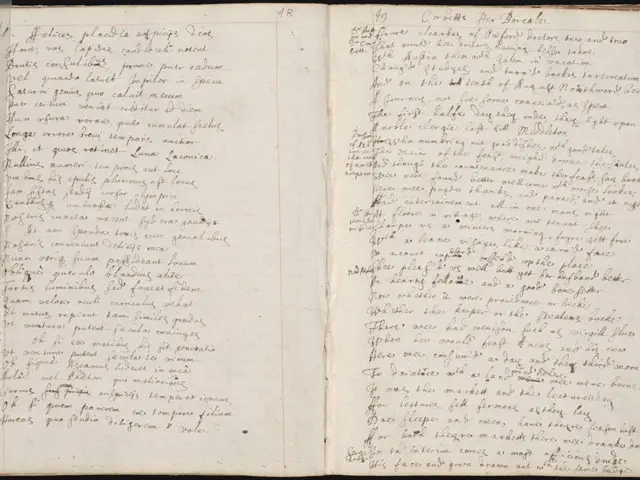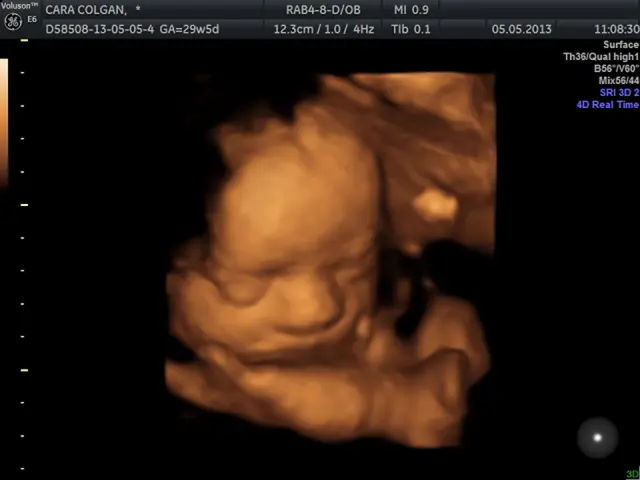Strawberry Moon's Stunning Display: Possible Effects on Your Sleep Patterns?
Article:
Red gleamed the night sky, a round orb stealing many a dream. The Strawberry Moon, a unique June full moon, shone brilliantly, casting a deep, large, and captivating glow on the earth.
Although it wasn't a supermoon, it appeared unusually low, large, and radiant following its 10 PM rise, dipping lower than any other full moon seen in the last 18 years, and will not touch the horizon again until 2043.
Its intense luminosity, while enchanting, may have disturbed countless beings seeking slumber. A common phenomenon during full moons, but what's the real deal here?
The Impact of the Strawberry Moon on Sleep
First off: Despite the evident disruption to countless slumbering souls, no concrete scientific link has yet been discovered.
However, there are theories that could potentially explain sleep disturbances during a full moon. One significant factor is the moon's intense radiance that keeps us from rest. Secondly, the illumination can amplify our thoughts and worries, leading to an agitated mind and struggles with shut-eye.
➧ Some researchers posit that the moon might influence our biological rhythms, possibly affecting the production of melatonin - a hormone regulating our sleep-wake cycle.
➧ Scientists at the University of Basel (Switzerland) recorded that deep sleep phases decreased by 30% during a full moon in a sleep lab experiment. Critics question whether this could be due to the uncustomary environment of the sleep lab.
American and Argentine researchers found an interesting pattern in a study involving individuals with varying access to electricity: all groups displayed similar habits in the days preceding the full moon - delayed bedtimes and shortened sleep durations.
Those without electricity slept 25 minutes longer on dark nights compared to full moon nights, while those with constant access to electricity slept only 11 minutes more. This pattern recurred every 29.5 days in synchronization with the moon's cycle. The researchers propose that this habit might be an inherited characteristic from pre-industrial eras when the moon served as a crucial light source.
Sleep specialist Dr. Michael Feld confirms this: "Indeed, the moon acts as a light source, but its impact is less pronounced in areas with electricity. We know this, for instance, from people who are more prone to sleepwalk during full moons than in other moon phases. Light is believed to be the underlying cause here as well."
Enrichment Data:
The scientific community's agreement on the full moon's influence on sleep patterns and duration remains inconclusive. The Strawberry Moon, for instance, may affect sleep quality and duration due to factors such as melatonin levels and light exposure. Here are some other important findings:
- Melatonin Levels: It has been observed that melatonin levels naturally dip during full moons, which can affect sleep quality and duration. Decreased melatonin levels are often associated with difficulties in falling asleep and reduced sleep quality[3].
- Sleep Quality and Duration: Some research suggests that individuals may experience sleep disturbances, diminished deep sleep, and increased time to reach REM sleep during full moons. This can result in feelings of fatigue and sluggishness[3].
- Environmental Factors: The full moon's radiance can also disrupt sleep due to increased light exposure, as more reflected light can make it harder to fall asleep and trigger more nighttime awakenings[5].
- Parasite Activity: There are claims that parasites are more active during full moons, potentially causing sleep disturbances through increased symptoms like stomach discomfort. However, these assertions are not broadly supported by mainstream scientific evidence[3].
- Scientific Consensus: Despite the aforementioned observations, there is no established scientific consensus that the full moon directly impacts sleep patterns. Many studies investigating lunar cycles' impact on human behavior have provided conflicting results, and the subject remains alive with speculation[5].
In summary, albeit evidence suggests that full moons might disrupt sleep due to factors like melatonin levels and light exposure, the scientific community is yet to reach a definitive consensus on the matter. Further research is essential to fully comprehend any potential effects.
- In the realm of sleep-and-wellness, researchers are still debating if the Strawberry Moon, much like other full moons, has a tangible impact on sleep patterns, particularly regarding melatonin levels and the quality of deep sleep.
- The scientific community's general consensus on whether the glow of the Strawberry Moon, space-and-astronomy's celestial spectacle, affects sleep duration and quality remains uncertain, with various environmental factors such as light exposure and individual differences in parasite activity being possible contributors to sleepless nights.








